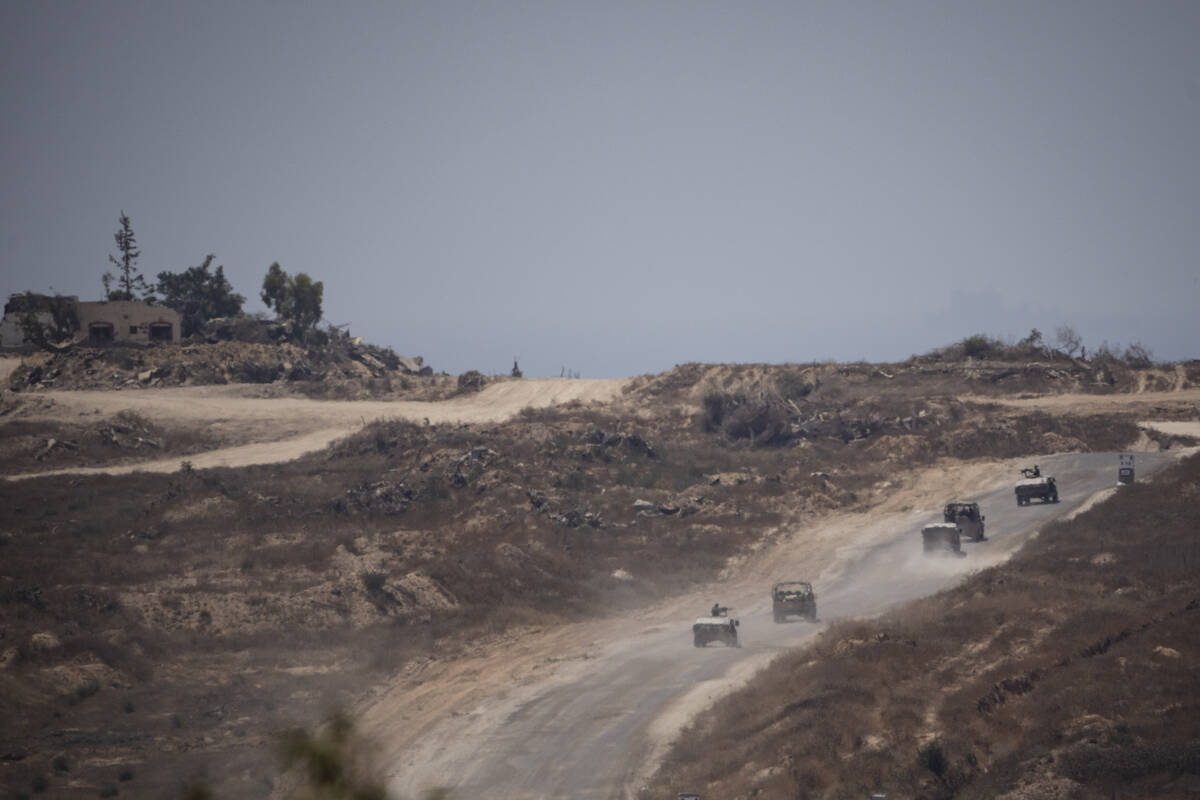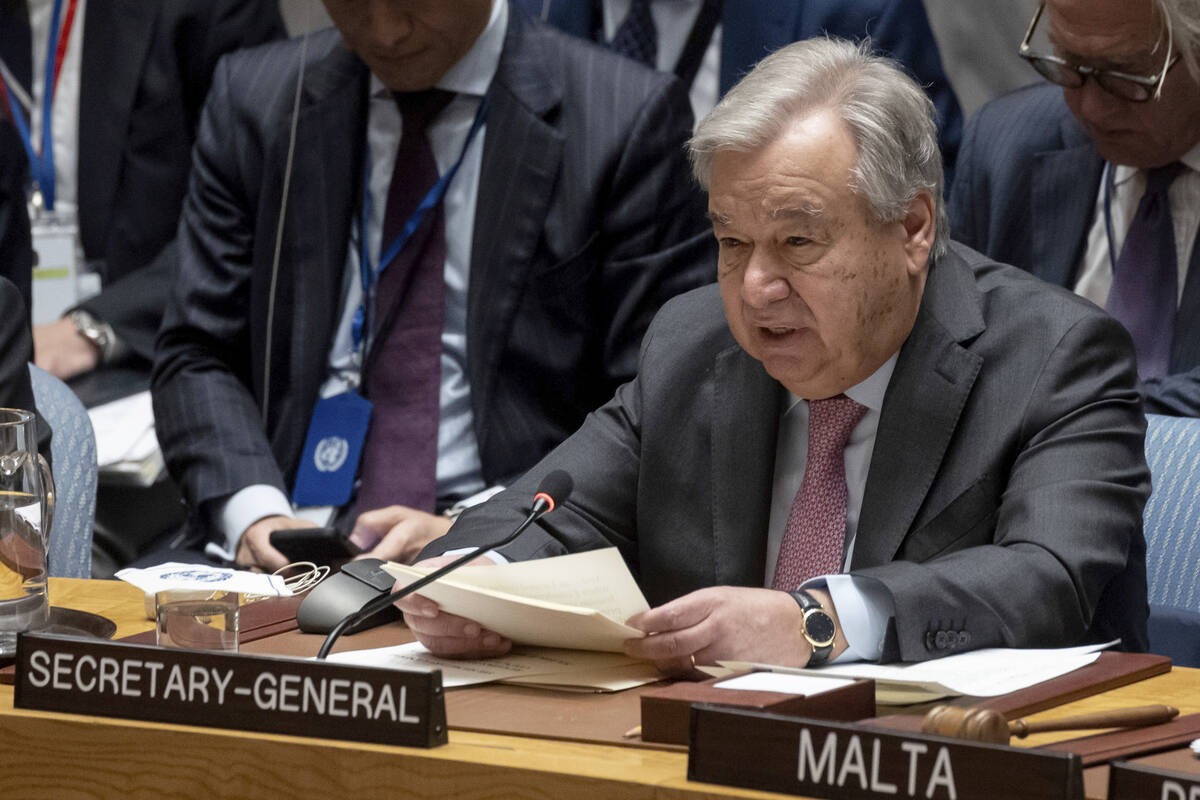U.N. Security Council adopts a cease-fire resolution aimed at ending Israel-Hamas war in Gaza
UNITED NATIONS — The U.N. Security Council on Monday approved its first resolution endorsing a cease-fire plan aimed at ending the eight-month war between Israel and Hamas terrorists in Gaza.
The U.S.-sponsored resolution welcomes a cease-fire proposal announced by President Joe Biden that the United States says Israel has accepted. It calls on the Palestinian Hamas terrorist group, which initially said it viewed the proposal “positively,” to accept the three-phase plan.
It urges Israel and Hamas “to fully implement its terms without delay and without condition.”
The resolution — which was approved overwhelmingly with 14 of the 15 Security Council members voting in favor and Russia abstaining — also calls on Israel and Hamas “to fully implement its terms without delay and without condition.”
U.S. deputy ambassador Robert Wood told reporters earlier on Monday that the United States wanted all 15 Security Council members to support what he described as “the best, most realistic opportunity to bring at least a temporary halt to this war.”
Israeli Prime Minister Benjamin Netanyahu has said that Biden presented only parts of the proposal and insisted that any talk of a permanent cease-fire before dismantling Hamas’ military and governing capabilities is a nonstarter.
The war was sparked by the Oct. 7 Hamas-led terrorist attack in southern Israel that killed about 1,200 people, mainly Israeli civilians, and saw about 250 others taken hostage. About 120 hostages remain, with 43 pronounced dead.
Israel’s military offensive has killed more than 36,700 Palestinians, according to the Hamas-run Health Ministry in Gaza.
The Security Council adopted a resolution on March 25 demanding a humanitarian cease-fire in Gaza during the Muslim holy month of Ramadan which ended April 9, with the U.S. abstaining. But there was no halt to the war.
The resolution adopted on Monday underscores “the importance of the ongoing diplomatic efforts by Egypt, Qatar and the United States aimed at reaching a comprehensive cease-fire deal, consisting of three phases.”
Biden’s May 31 announcement of the new cease-fire proposal said it would begin with an initial six-month cease-fire with the release of hostages in exchange for Palestinian prisoners, the withdrawal of Israeli forces from populated areas in Gaza and the return of Palestinian civilians to all areas in the territory.
Phase one also requires the safe distribution of humanitarian assistance “at scale throughout the Gaza Strip,” which Biden said would lead to 600 trucks with aid entering Gaza every day.
In phase two, the resolution says that with the agreement of Israel and Hamas, “a permanent end to hostilities, in exchange for the release of all other hostages still in Gaza, and a full withdrawal of Israeli forces from Gaza” will take place.
Phase three would launch “a major multi-year reconstruction plan for Gaza and the return of the remains of any deceased hostages still in Gaza to their families.”
The final draft of the resolution “underlines” that the proposal says if negotiations take longer than six weeks for the first phase, “the cease-fire will still continue as long as negotiations continue.” It welcomes “the readiness of the United States, Egypt and Qatar to work to ensure negotiations keep going until all the agreements are reached and phase two is able to begin.”
The resolution rejects any attempt to change Gaza’s territory or demography, or reduce its size, but drops wording that specifically mentioned the reduction by officially or unofficially establishing “so-called buffer zones.”
It reiterates the Security Council’s “unwavering commitment to achieving the vision of a negotiated two-state solution where two democratic states, Israel and Palestine, live side by side in peace within secure and recognized borders.”
And it stresses “the importance of unifying the Gaza Strip with the West Bank under the Palestinian Authority.”
This is something Israeli Prime Minister Benjamin Netanyahu’s government has not agreed to.
























